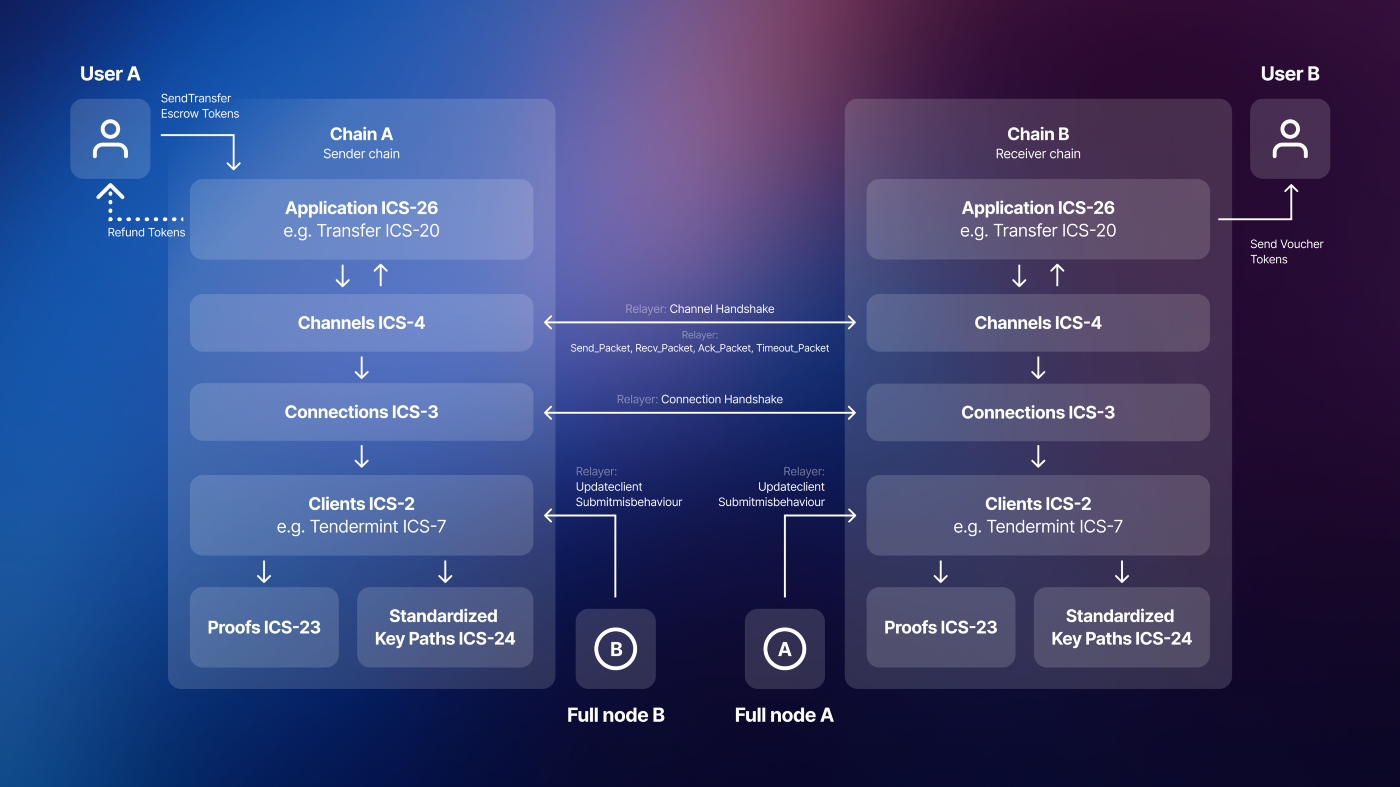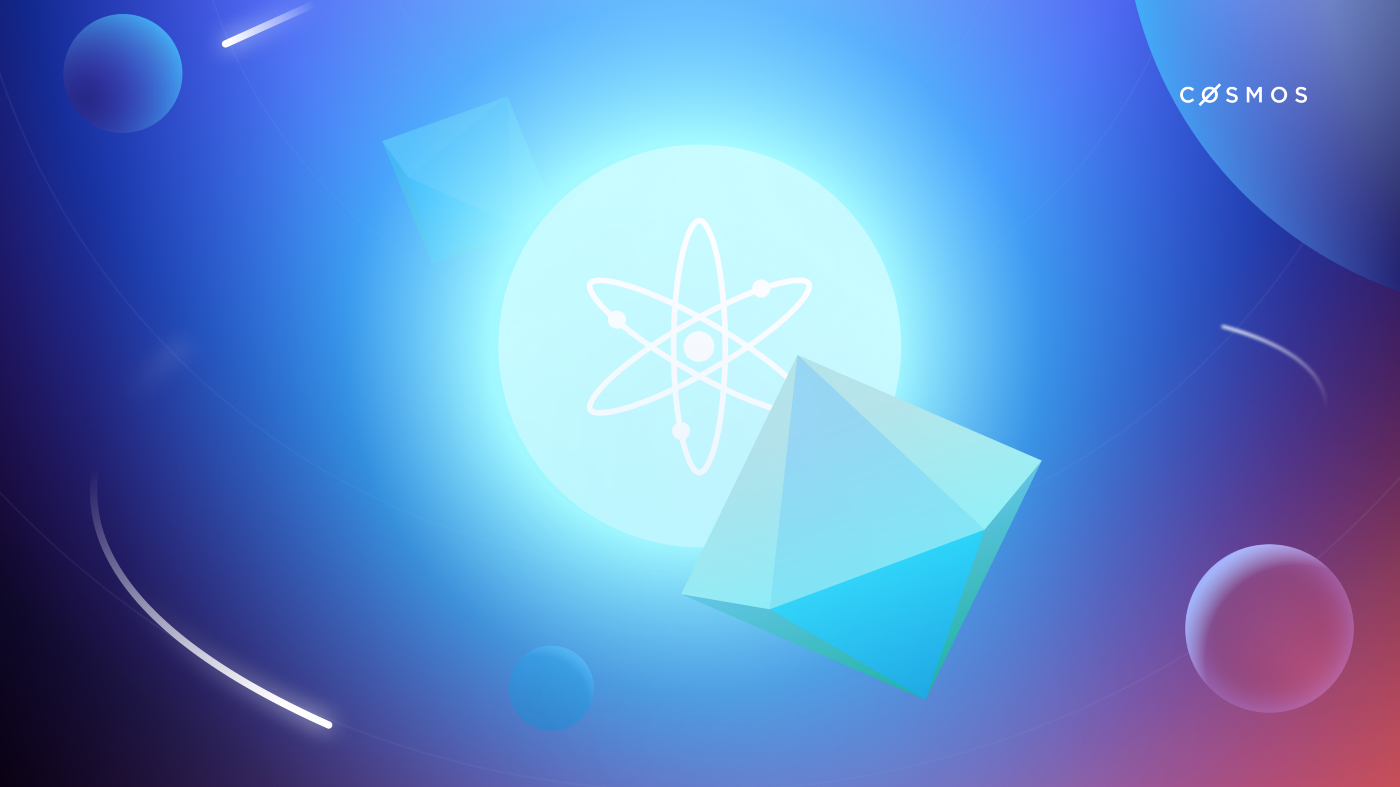The Cosmos IBC inter-chain account is here, and this article will help you understand the significance of this major upgrade
Source: The Way of DeFi
Here it comes, Interchain Accounts have finally arrived, capable of bringing composability to interchain transactions in the Cosmos, elevating the entire Cosmos ecosystem to a new level. In this article, we will explore the latest version of the Inter-Blockchain Communication protocol (IBC) and what this new feature means for users.
A Brief Overview of IBC and Cross-Chain Communication
We know that the security of cross-chain interoperability depends on its weakest (or most trusted) link, and cross-chain solutions that allow communication between heterogeneous chains (i.e., blockchains that are not yet connected through a beacon chain or relay chain) can be loosely divided into protocols that rely on third-party trust roots external to the two chains (trust-based) and those that do not rely on third-party trust roots (trust-minimized).
The design and value proposition of trust-based interoperability protocols are straightforward: their sole purpose is to verify transactions that are passed back and forth between two ecosystems. Trust in the security of transactions is delegated to validators on the protocol infrastructure; you trust the validators, you trust the assets.
Variants of this design apply to delegating the trust root to slashing oracle or cross-chain bridge validator sets, but in all cases, the security model of trust-based interoperability protocols considers additional security assumptions from third parties.
On the other hand, the design of IBC is trustless, with a handshake (mimicking the TCP/IP handshake) initiated between the two chains that wish to connect, followed by confirmation. To confirm transactions, the validity rules of one chain are directly encoded into the IBC client on the other chain, and state validation is executed based on these rules.
For example, the out-of-the-box ibc-go implementation in the Cosmos SDK uses a Tendermint light client that can validate the Merkle proof of the block header associated with the transaction based on the latest consistent state of the counterparty chain, thereby validating the state of the ibc transaction on the other end of the chain.


This state validation technique, along with the real-time network of relayer operators that pass data packets back and forth, ensures that IBC remains highly secure and permissionless—any chain can initiate an IBC client and relayer and connect to other sovereign Interchain networks.
The IBC protocol consists of two distinct layers: the transport layer (or "TAO" for transport, authentication, and ordering) and the application layer. The former provides the necessary infrastructure to establish secure connections between chains and authenticate packets, while the latter precisely defines how the sending chain and receiving chain should package and interpret these packets.
When people talk about interoperability protocols, they usually refer to the transport layer, and IBC provides the highest security design for this layer. However, the immense potential of IBC lies in its ability to optimize not only the transport layer but also the layers above it: a powerful and secure, yet ultimately universal and permissionless transport layer that supports a wide range of innovative applications.
So far, the challenge at the application layer has been: how do I transfer assets from chain A to chain B, and how will these chains understand what the assets are? The IBC application layer protocol standards and modules address this issue through IBC token transfers, oracle data, and the upcoming interchain NFT transfers and IBC query standards expected to be completed in the second quarter of 2022.
Interchain Accounts provide a protocol-level answer to the next question: now that assets can be transferred, what can we do?
Interchain Accounts and Interchain Composability
In Cosmos, applications do not have direct access to each other, except for CosmWasm smart contracts, as each application is essentially its own blockchain. Nevertheless, due to the existence of IBC, the Cosmos ecosystem has become the second-largest blockchain ecosystem by TVL, only behind Ethereum.
As the next step in the development of cross-chain interoperability, Interchain Accounts achieve native composability in cross-chain transactions, allowing chains not only to exchange data but also to write state.
A composable system is one where its various components can be decoupled, restructured, and reintegrated as building blocks into a larger system. In a highly composable setting, innovation and optimization can occur not only at the highest level but also at each component, and composability makes the whole greater than the sum of its parts.


By enabling the Interchain Accounts module developed by Interchain GmbH, Chainapsis, Informal Systems, and Confio, IBC blockchains can do much more than just connect and transfer tokens; Interchain Accounts provide access rights to all IBC blockchain accounts directly from a Cosmos Hub account.
So what does this mean? It means that blockchains in the Cosmos ecosystem can access applications on another chain and perform any operations inherent to that chain. For example, after enabling the Interchain Accounts module, users on the Sommelier chain can execute transactions on Osmosis (such as staking, voting, swapping tokens, etc.), and vice versa. This significantly improves the user experience and brings much-needed composability to the Cosmos ecosystem.
Better yet, unlike applications in Ethereum or similar ecosystems that must relinquish their sovereignty and be bound by the governance of their L1 layer, using IBC as a protocol allows blockchains to maintain full sovereignty while achieving interoperability. In other words, the composability introduced by Interchain Accounts does not deprive specific application chains of their benefits.
Cosmos Hub, Sommelier, and Osmosis Will Be the First to Enable Interchain Accounts
It is reported that Cosmos Hub, Sommelier, and Osmosis will be the first to implement the Interchain Accounts module, ushering in the next phase of Cosmos interoperability.
The upgrade of the Interchain Accounts module for Cosmos Hub is planned to be implemented in the first quarter of 2022 as part of the Theta upgrade, pending governance approval.
Of course, all applications and protocols that succeed on IBC will attract more users to use Cosmos, benefiting the entire ecosystem. For more information on Interchain Accounts, please refer to the detailed report on the Interchain Foundation blog here.











